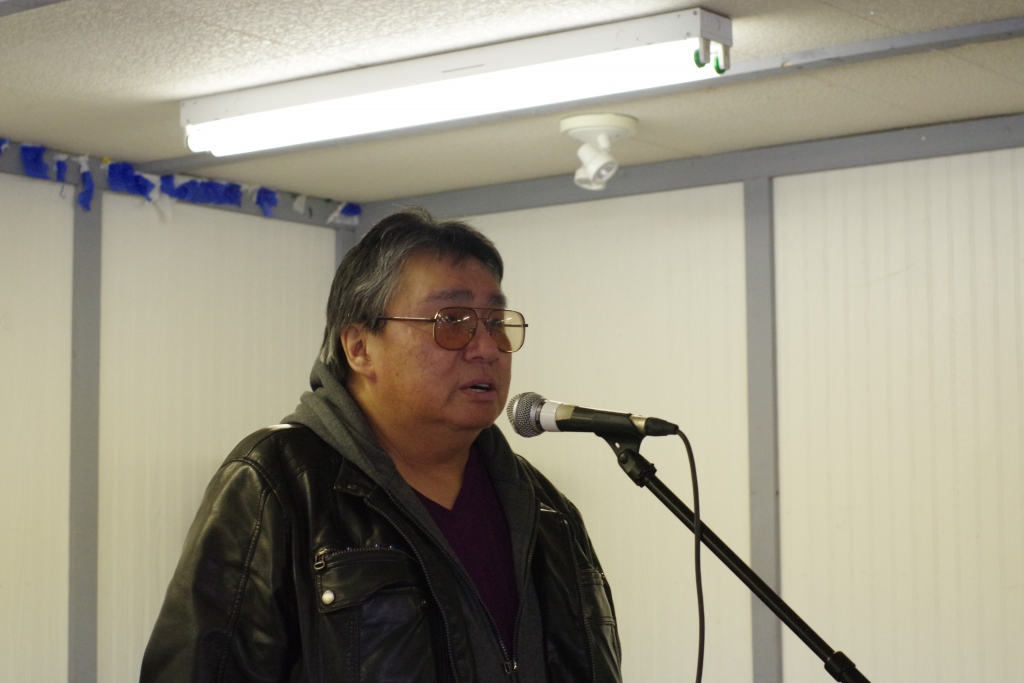The winter road between Wapekeka and Kitchenuhmayooosib Inninuwug was open in early February and the winter road from KI to the Asheweig winter road is nearing completion.
“By next week, light traffic should be open,” says KI Chief James Cutfeet on Feb. 3. “But we’re still flooding the spots where the ice is really thin. It should be good to go in about a week for sure.”
The road from KI to the Asheweig road goes over a river and a lake. Cutfeet says a minimum of 30 inches of ice is required for transport trucks to operate on the winter road.
“Either that, or we may have half loads,” Cutfeet says. “That will be determined by the road crew.”
Cutfeet says his community has ongoing housing projects, which require the transportation of building supplies over the winter road.
“And we had thought about pre-ordering hydro poles for our joint hydro connect between Wapekeka and Big Trout,” Cutfeet says.
Wapekeka Chief Brennan Sainnawap says is community needs to haul in fuel supplies and housing and renovations materials over the winter road this winter.
“So that is what we have to wait for — to see how that lake and that river is,” Sainnawap says. “If we can’t get anything on the winter road, we will have to fly it in and it will cost maybe three times as much.”
Sainnawap says the community would have to evaluate what they need to bring in if the winter road is not usable for transporting supplies.
“First and foremost would be our fuel, that is the main thing we have to bring in first,” Sainnawap says. “I hope we can get it going — we have a lot of materials waiting in Winnipeg to be brought in.”
Other winter roads across the north were also open for light traffic, as of late January. Neskantaga’s winter road to Pickle Lake was open for light traffic as of Jan. 22 and the winter roads along the James Bay coast were open for light traffic as of Jan. 21.
Regional Chief Isadore Day called for the federal and provincial governments to order a climate change impact study for the north due to the changing weather conditions.
“Climate change has dramatically reduced the length of time winter roads are accessible causing shortages of food, fuel and medical supplies and increasing the need to fly-in supplies,” Day says on Dec. 18. “This results in higher living costs and potential decreases in quality of life and health.”
The Chiefs of Ontario were concerned that 31 remote communities in Ontario would not have their winter roads in place at the normal time in mid-January.














I am the product, evolution of many thousands of years as are you. I grew up on the land in the remote far north of Ontario following in the footsteps of my...
One of the most beautiful serene places I’ve ever visited was on the banks of the Opinagau River in northern Ontario, just near the corner of land where...